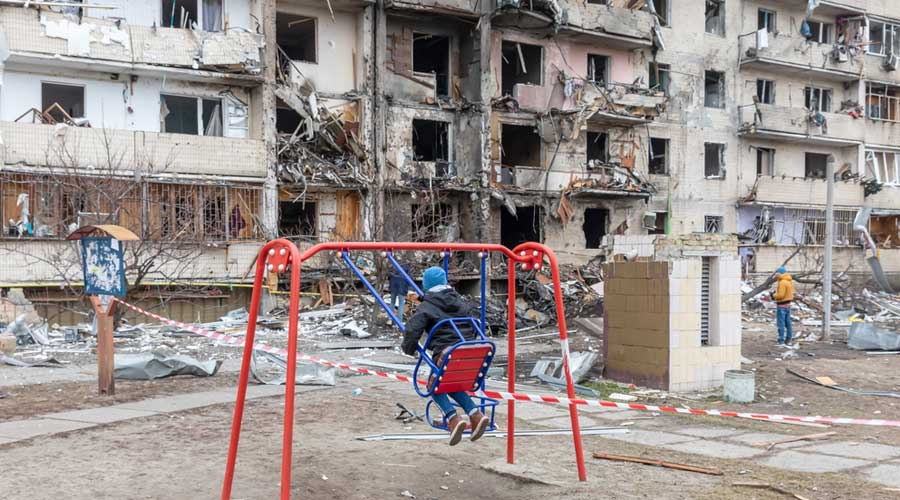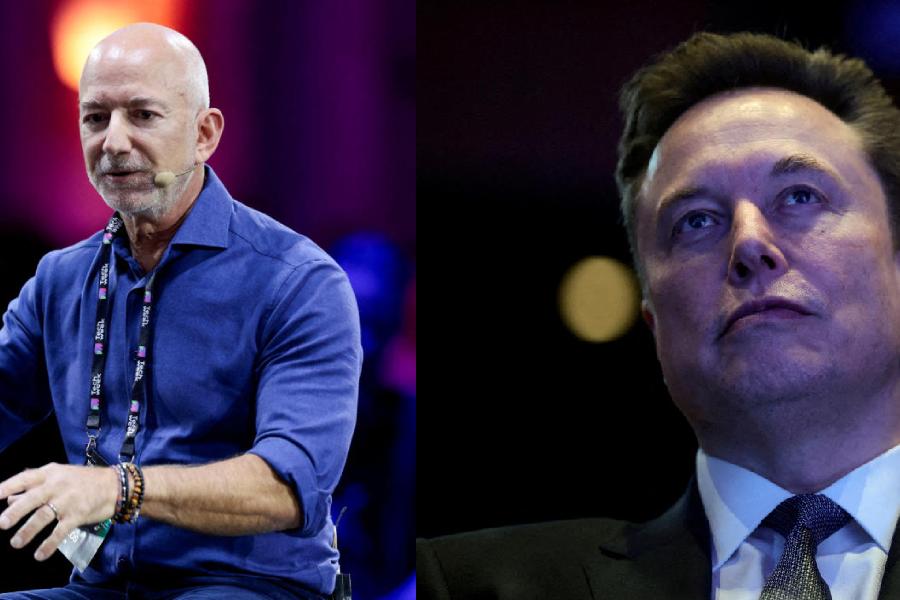The Ukraine invasion is not the first to be launched by a Permanent-5 member of the United Nations Security Council. What makes it unique though is that it is occurring in Europe, a continent which had arrogantly thought that it had evolved beyond such blatant and bloody aggression. That illusion lies shattered in the accumulating images and the cries of human suffering inherent to all wars: bewildered and anguished faces of children, tears of women and men, long lines of refugees, bodies on the streets and buildings destroyed. All that and more was seen during the invasion and occupation of Afghanistan by Russia’s predecessor State, the Soviet Union. It was partly witnessed in the 2003 invasion of Iraq by the United States of America and its allies. So, sadly, what the Ukrainians are suffering has been the fate of others outside Europe too in the past seven decades in many unjustified armed actions by the US and European powers.
The assertion of European exceptionalism was witnessed in the early stages of this war in the accounts of those journalists and officials who wondered ‘how could this happen to people like us?’ That offensive sentiment was not repeated in the subsequent reportage and officials became politically correct in their articulation. However, it surfaces nevertheless. Amidst reports that Ukrainian soldiers shot Russian prisoners, Oleksiy Arestovych, an aide to the Ukrainian president, Volodymyr Zelensky, even while assuring that an investigation will take place, reportedly said, “We are a European army, and we do not mock our prisoners.” This obvious equating of European with professional was striking. It overlooked what Kailas Nath Katju, surveying the scientific and technological advancement of the first half of the 20th century, had noted: that despite these great achievements “The same elemental emotions and passions rule[d] mankind everywhere and in all ages.” The digital age has not changed human nature, nor the impulses of states.
Russia’s Ukraine war is, of course, far more than a story of European hubris for its impact is and will continue to be worldwide, involving issues and concerns about the current global order itself which is already under profound pressure because of China’s aggressive rise. This invasion will compel many states to consider options on how to avoid Ukraine’s fate at the hands of a powerful neighbour, especially one with nuclear weapons. Will those with scientific and technological capabilities, such as Japan, Germany and South Korea and others, consider if the security provided by their membership of alliances offers sufficient protection? There will certainly be debates in their security establishments on the reliability of alliances if they were in a real crunch with threats and actions going up the escalatory ladder.
A basic aspect of global order is to limit the number of countries which possess nuclear weapons. The dissolution of the Soviet Union could have led to an increase in their numbers but security guarantees and assurances of large aid packages were given to those who had them, including Ukraine, in exchange for their giving up of nuclear weapons. Thus, all US statements about the obligation of NATO to defend its member-states’ territories are as much as warnings to Russia as endeavours to instil confidence in its allies about their security. But are assurances certain unless they are tested? And tests may be too late if a nuclear state invades.
There is another side to global order. It is contained in the proposition that nuclear weapons are not for fighting wars but are deterrents against existential threats. These have been largely defined in terms of state survival and the prevention of mass deaths that can be caused by a nuclear attack. But what if a nuclear-armed country with an advanced economy links it to preventing the destruction of or even enormous damage to its economy? It is one matter to cripple an economy like that of Iran but Russia is in a different category altogether. It is true that North Korea has suffered severe sanctions but it eventually knows that the US is not within its reach and while it can wreak havoc in parts of Asia, it will be obliterated if it does so. So the North Korean example cannot also apply to Russia. Therefore, the application of sanctions against Russia will have to be very carefully calibrated.
As a major power, Russia is an important element of the present global order. Vladimir Putin has helmed his country for more than two decades and is no political or strategic novice. He would have been aware that the Ukraine invasion, howsoever Russia projected it, would more than disturb the world order. Russia was at odds with the West and despite many justified resentments has major stakes in maintaining European order. Also, unlike China, it does not possess the economic capacity to seek to fundamentally alter global equations. Putin clearly erred if he thought that the Western powers would simply absorb his actions and move on. Perhaps Putin wished to quickly present a fait accompli through a change in government in Kyiv and bending Ukraine to Russian will. That did not happen.
Worse than an unjustified war is one with shifting objectives arising out of a lack of full success. That is obvious from the unsatisfactory performance of the Russian land forces which has compelled a far greater use of aerial force that has damaged not only military but also civilian infrastructure. Shock and awe has a logic but shock and little or no awe is counterproductive. It stiffens backs and rouses nationalism, making it difficult to find acceptable solutions that is the task of diplomacy. That has happened in this conflict. It had appeared a fortnight ago that Ukraine and Russia were resiling from their maximalist positions to resolve issues but that was not to be.
Now the two countries seem to be seriously engaged again but the road ahead is long. Wisdom requires a focus on practical solutions to avoid a complete Ukrainian wasteland, a diminished and, therefore, dangerous Russia and a world order in turmoil, but is anyone really looking for enduring solutions?
Vivek Katju is a retired Indian Foreign Service officer










